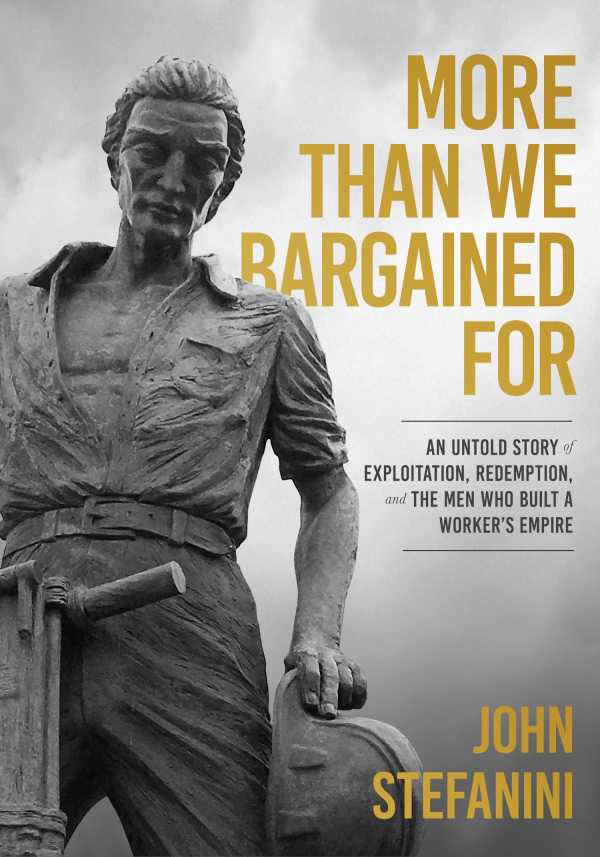More than We Bargained For
An Untold Story of Exploitation, Redemption, and the Men Who Built a Worker's Empire
More than We Bargained For is an enthralling immigrant’s story about overcoming adversity.
John Stefanini’s memoir More than We Bargained For tells a hopeful story of emigration from post-WWII Italy to Canada in the late 1950s, concentrating on Stefanini’s pivotal role as a union organizer and activist in the manufacturing and construction industries.
Stefanini arrived in Toronto in 1959, speaking little English. The job he obtained as a plasterer awoke him to the fact that his fellow immigrants, especially those employed in related fields of manufacturing and construction, endured unsafe working conditions without access to affordable healthcare. Determined to make a difference, Stefanini joined a labor union. Over the course of decades, he proved to be a tough but fair negotiator who lobbied businesses and politicians to assure better wages and safer environments, bringing about positive change for workers in Canada.
Stefanini’s work also examines the influence of immigrants in a positive light, particularly in regard to their role in nation building in post-WWII North America. Reminiscing about his earlier experiences, he identifies with the plight of such invariably poor and vulnerable people, showing how they made long journeys across oceans and found assimilation difficult due to language barriers. Enthusiastic support for immigrants is apparent in accounts of Stefanini’s tireless union work, as well as his assertion that immigrants’ successes contributed much to the economy and infrastructure of Canada.
Addressing the less savory side of activism, the book does not shy away from examining the fact labor strikes occasionally led to violence. In frank language, it describes Stefanini’s frustration over his own imprisonment following a volatile altercation between union and non-union members. The experience becomes a way to delve into inadequacies of the judicial system of Canada, as does Stefanini’s explanation of how his confusion about the actual length of his sentence led to an extended incarceration—yet another challenge to be overcome.
The straight, linear narrative is journalistic in style, putting Stefanini’s story into historical context through painstaking examinations of the political climate of the time and naming key players in the unions, corporations, and governments of Canada and the United States. It doubles as a researched history of labor unions in North America, backed up with references to other works about the struggles of Italian immigrants during Stefanini’s years of activism.
Important for its statement on the positive impact one man can have in advancing a social movement, More than We Bargained For is an enthralling immigrant’s story about overcoming adversity.
Reviewed by
Lisa Guidarini
Disclosure: This article is not an endorsement, but a review. The publisher of this book provided free copies of the book and paid a small fee to have their book reviewed by a professional reviewer. Foreword Reviews and Clarion Reviews make no guarantee that the publisher will receive a positive review. Foreword Magazine, Inc. is disclosing this in accordance with the Federal Trade Commission’s 16 CFR, Part 255.

